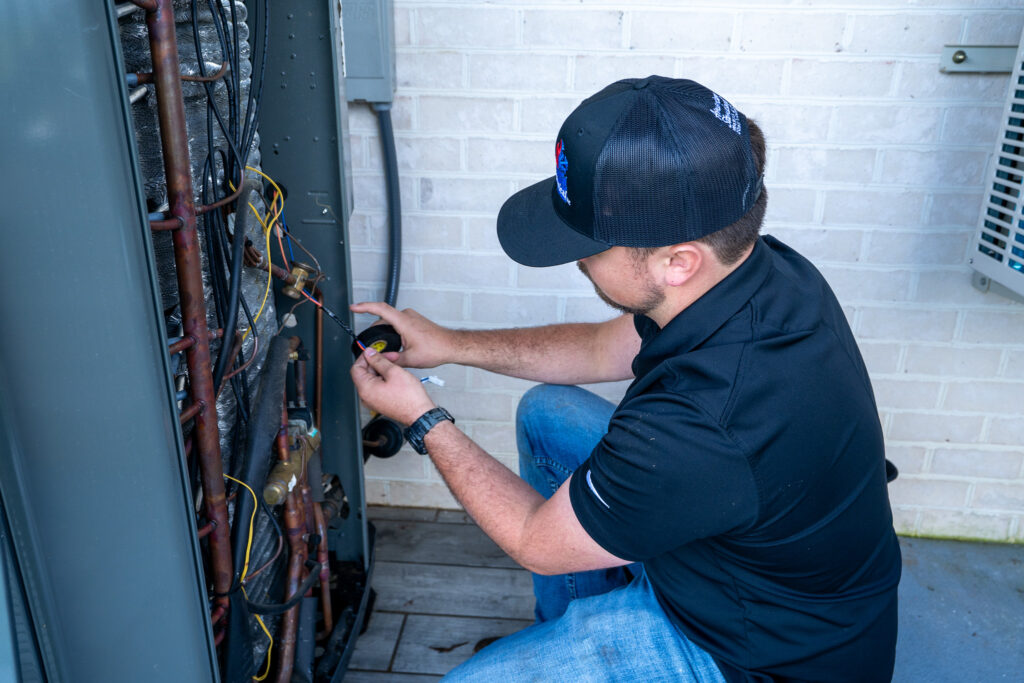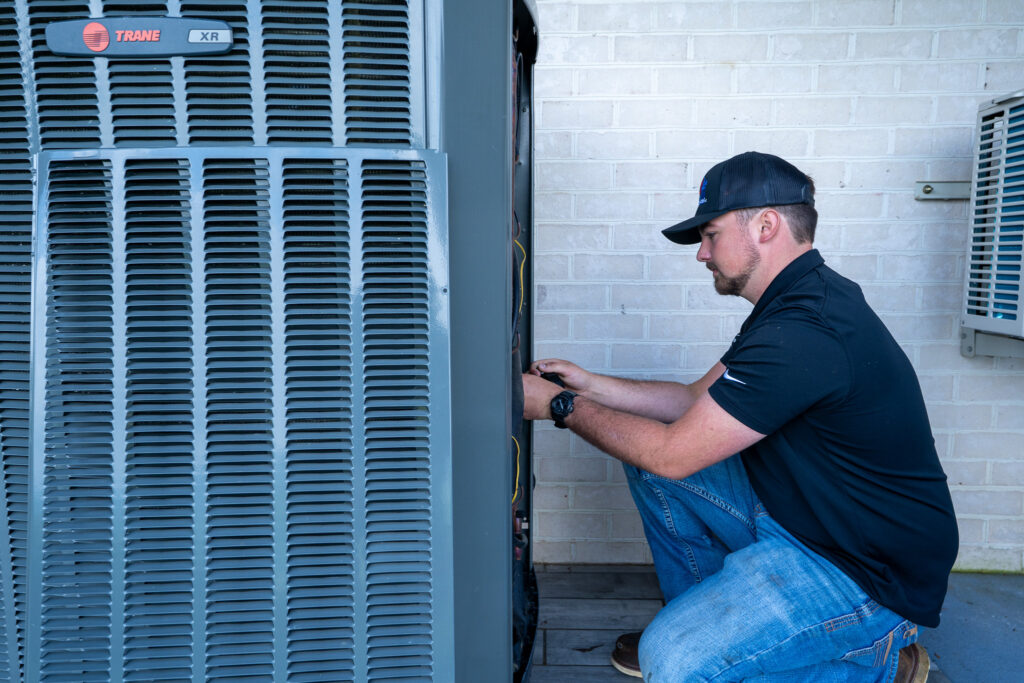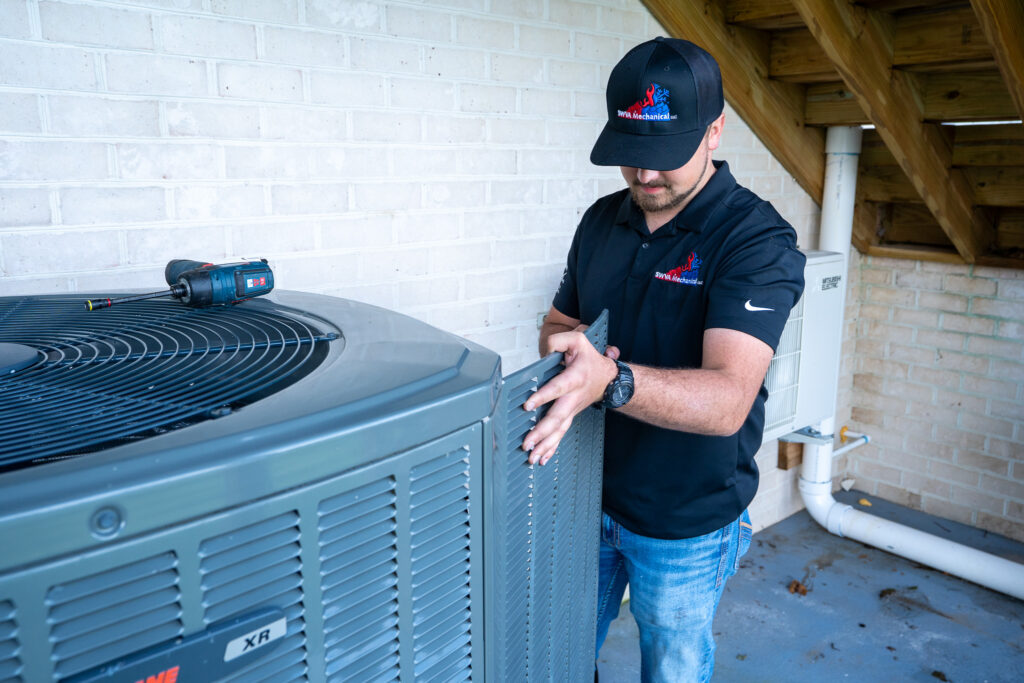A modern heat pump is a significant and intelligent investment in your home’s year-round comfort. This single, highly efficient system works tirelessly to provide cool relief during our hot Virginia summers and reliable warmth through the cold winter months. Like any major mechanical system, its lifespan and performance are not guaranteed; they are directly influenced by how the system is used and cared for over time. The average heat pump has an operational lifespan of ten to fifteen years, but this number is not a fixed expiration date. With proactive care and regular maintenance, you can help your system reach and even exceed that timeline.
Protecting your investment is about more than just avoiding a premature replacement. A well-maintained heat pump operates more efficiently, which lowers your monthly energy bills. It also provides more consistent and reliable comfort and is far less likely to suffer a sudden, inconvenient breakdown. This information will provide you with practical, actionable steps that every homeowner can take to maximize the efficiency and extend the service life of their heat pump, ensuring it remains a dependable source of comfort for your family for many years to come.
The Year-Round Workhorse: Why Heat Pump Maintenance Matters
To understand the importance of maintenance, it is crucial to recognize what makes a heat pump different from a traditional HVAC system. Unlike a home with a separate furnace for heating and an air conditioner for cooling, a heat pump is a single system that performs both jobs. It works all year long, reversing its cycle to move heat out of your home in the summer and pull heat into your home in the winter. This double duty means that a heat pump accumulates wear and tear at a much faster rate than a standalone air conditioner or furnace.
The four-season climate here in Southwest Virginia puts this year-round workhorse to the test. The system must endure the strain of our hot, humid summers, and then immediately transition to handle the demands of our cold, and often snowy, mountain winters. This constant operation makes regular, professional care not just a recommendation, but an absolute necessity for ensuring the system’s longevity and reliability.

Regular maintenance is the key to reducing this accumulated strain. It allows a technician to address the small, correctable issues that arise from this constant use before they can escalate into major, costly breakdowns. A well-maintained heat pump is an efficient heat pump, and a commitment to its care is the foundation of protecting your home comfort investment.
The Foundation of Longevity: Schedule Professional Maintenance Twice a Year
The single most effective step any homeowner can take to extend the life of their heat pump is to schedule professional maintenance twice a year. This biannual schedule is critical because your heat pump has two distinct jobs, and each season places a different set of demands on its components. A pre-season checkup in the spring is designed to prepare your system for its cooling function, while a tune-up in the fall ensures it is ready to handle the heating season.
During these professional service visits, a certified HVAC technician will perform a comprehensive series of tests, cleanings, and calibrations. Key tasks include a deep cleaning of both the indoor and outdoor coils to ensure proper heat transfer, a verification of the system’s refrigerant charge to guarantee it is at the manufacturer’s precise specifications, and a thorough inspection and tightening of all electrical connections for safety and reliability. For the heating season, the technician will also test the system’s defrost cycle, which is essential for proper operation in cold weather.
The team at SWVA Mechanical has developed a maintenance process specifically designed to prepare your heat pump for the upcoming season. These tune-ups are a proactive measure that not only improves efficiency and lowers your energy bills but also allows our technicians to spot and resolve small, developing issues before they can cause a failure. This preventative care is the cornerstone of a long and healthy system lifespan.
A Breath of Fresh Air: Keep the Outdoor Unit Clean and Clear
While the deep, internal cleaning of your system should be left to a professional, there are simple but important tasks a homeowner can perform to help their heat pump operate efficiently. The outdoor unit of your heat pump works by transferring heat to and from the surrounding air. To do this effectively, it needs a constant, unrestricted flow of air through its condenser coil. When this airflow is blocked, the system has to work much harder, which puts a strain on its components and wastes energy.
You can help your system by performing regular visual inspections of the outdoor unit and clearing away any obstructions. Gently rinse the unit with a garden hose to remove any loose dirt, dust, and cottonwood that may have accumulated on the fins. Be careful not to use a high-pressure nozzle, as this can easily bend the delicate metal fins and create a new airflow restriction. You should also clear away any fallen leaves, grass clippings, or other yard debris that has collected around the base of the unit.
It is also critically important to maintain a clearance zone of at least two feet around the entire outdoor unit. Take the time to trim back any overgrown shrubs, weeds, or overhanging tree branches that could be impeding airflow. Be mindful of the unit when you are doing yard work, such as mowing or using a weed trimmer, to avoid accidentally damaging the fins or the sensitive refrigerant lines. This simple housekeeping can have a significant positive impact on your system’s performance.
The First Line of Defense: Change or Clean Air Filters Regularly
The simplest, most effective, and most important maintenance task a homeowner can perform is to diligently check and change the system’s air filter. A clogged filter is the number one cause of reduced efficiency and mechanical strain in any forced-air system. It chokes the flow of air, forcing the system’s blower motor to work harder and longer to circulate air throughout your home. This not only drives up your energy bills but can also cause the motor to overheat and fail prematurely.
This restricted airflow can cause other serious problems as well. In the summer, it can prevent enough warm air from passing over the indoor coil, causing it to freeze into a solid block of ice. In the winter, it can cause the supplemental heating elements to get too hot, tripping a safety switch and shutting the system down. We recommend that homeowners in Virginia check their filter every month and plan to replace it at least every three months, or more often if you have pets or if there are allergy sufferers in the home.
The Lifeblood of Your System: Monitor and Maintain Proper Refrigerant Levels
Refrigerant is the specialized substance that circulates through your heat pump, absorbing and releasing heat to provide both cooling and heating. Your system is charged with a precise amount of refrigerant at the factory, and it operates in a closed loop. It is critical to understand that refrigerant is not a fuel; it does not get “used up” over time. If your system is low on refrigerant, it means there is a leak somewhere in the system.
The signs of a low refrigerant level are often a noticeable decline in the system’s heating or cooling performance. You may also notice the formation of ice or frost on the copper refrigerant lines or on the coils of the outdoor unit, even during the heating season. In some cases, you might hear a hissing or bubbling sound, which is the sound of the refrigerant escaping from the lines.
Handling refrigerant is a task that should only be performed by a licensed and EPA-certified professional. It requires specialized tools to accurately measure the pressure and temperature of the system, locate the source of the leak, perform a proper repair, and then recharge the system to the manufacturer’s exact specifications. Attempting to do this yourself is dangerous and illegal.
A Stitch in Time: Address Minor Repairs Promptly
A complex mechanical system like a heat pump will often give you warning signs long before a major failure occurs. A strange new noise, a minor reduction in airflow, or an inconsistency with the thermostat are all clues that a component may be starting to fail. It can be tempting to ignore these small issues and hope they go away, but this is almost always a costly mistake.
Waiting to address a small problem allows it to escalate. A strange noise could be a sign of a failing motor bearing; if it is not addressed, the motor can seize up and fail completely. A small refrigerant leak, if left unrepaired, will eventually cause the compressor to fail, turning what could have been a manageable repair into the most expensive repair your system can have.

The diagnostic process at SWVA Mechanical is designed to find the root cause of these early warning signs and fix them before they can cause a chain reaction of damage. Being proactive about small repairs is one of the most effective ways to prevent a complete and disruptive system breakdown, saving you money and stress in the long run.
Your heat pump is a significant investment in your home and your family’s comfort, and it is an investment worth protecting. By adopting a proactive approach to its care, you can ensure it operates efficiently, reliably, and for its maximum possible lifespan. The most effective strategy for extending the life of your heat pump is a partnership between the diligent, simple maintenance tasks performed by the homeowner and the deep, technical expertise of a professional technician who performs regular, seasonal tune-ups.
This commitment to regular maintenance is the single most effective way to protect your system from the strain of our demanding four-season climate here in Southwest Virginia. If it has been more than six months since your last professional service, or if you have any concerns about your system’s performance, we encourage you to be proactive. Contact the expert team at SWVA Mechanical to schedule a comprehensive heat pump inspection or maintenance service today.


